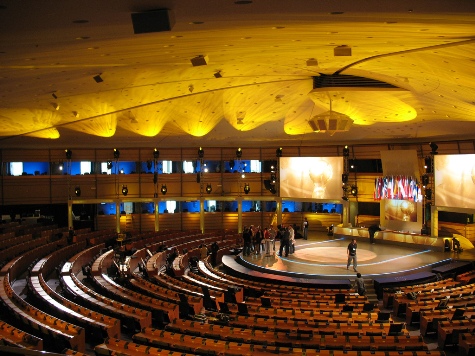MEPs are set to vote on proposals that critics say will amount to a “propaganda campaign”. A report overseen by Liberal Democrat MEP Sir Graham Watson says that the EU is not doing enough to promote itself in the media, and calls for a new strategy to spread the organisation’s values.
The Times says that the report, which is being considered by the European Parliament, claims that the European Union needs to do more to “promote [the] EU’s underpinning values and its goals as a global actor,” and lists various ideas on how to do this.
One proposal says that “setting up a worldwide European Radio Service could be very useful as a comprehensive tool for [the] EU’s external action relations.”
It is also scathing of current EU media outlets such as EuroparlTV, which “cannot be considered to be a success story in view of its low number of direct individual users,” despite costing £9 million a year.
The report adds that “there is a need to establish a coherent European media broadcasting strategy.”
It suggests doing this by using “various methods of broadcasting news and opinion programmes, including television, radio, the internet, online broadcasting, the social media and mobile platforms, in order to ensure the broadest possible outreach to public audiences outside the EU.”
MEPs are due to vote on the report tomorrow, and if passed, it will go to the European External Action Service for consideration.
Rory Broomfield, director of the cross-party Better Off Out campaign, told Breitbart London: “The belief that people will buy a product they don’t want if only there is more money spent on promoting it is laughable.
“Using British taxpayers’ money to promote propaganda that they don’t want to hear and don’t believe will only backfire.
“At a time when even the BBC is struggling to adapt to change, we don’t need an even larger organisation that is even further away from the people telling them what to do and think.
“With the world becoming more connected at an individual level rather than through the state, this is yet more confirmation that the EU is a 20th century model that is not fit for today’s world.”

COMMENTS
Please let us know if you're having issues with commenting.